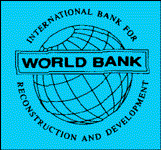 The World Bank and the International Monetary Fund (IMF) ended their Spring Meetings in Washington, DC on Sunday, with the endorsement of an increase of developing countries’ voting power in the International Bank for Reconstruction and Development (IBRD) by 3.13 percentage points to 47.19 percent.
The World Bank and the International Monetary Fund (IMF) ended their Spring Meetings in Washington, DC on Sunday, with the endorsement of an increase of developing countries’ voting power in the International Bank for Reconstruction and Development (IBRD) by 3.13 percentage points to 47.19 percent.
This represents a total shift of 4.59 percent to developing and transition countries since 2008, the World Bank/IMF joint Development Committee said in a communique issued after its meeting in Washington.
The move marks “important strides of increasing the voice and influence of developing countries at the World Bank Group,” World Bank President Robert Zoellick said at a press conference. “The endorsement of the shift in voting power is crucial for the bank’s legitimacy.”
As a result of the shift, China’s voting power has now increased to 4.42 percent from 2.77 percent, the third biggest after the United States and Japan.
Brazil’s voting power has risen from 2.06 percent to 2.24 percent, and India from 2.77 to 2.91.
The latest realignment includes a selective capital of 27.8 billion U.S. dollars with paid-in capital of 1.6 billion dollars.
The committee also approved a capital increase of 86.2 billion dollars for the IBRD, including 58.4 billion dollars in general capital increase and 27.8 billion dollars in selective capital increase.
By increasing its legitimacy through the voice reform and rebuilding its capacity through the capital increase, the World Bank will strengthen its efficiency, effectiveness and accountability to help the world battle the current crisis and meet future challenges, the committee said.
The communique stressed the need for international cooperation in the face of uncertainty in global recovery from the crisis.
It called for intensified efforts to help poor countries attain the Millennium Development Goals, as the world is only five years away from the 2015 deadline. Xinhua

Leave a Reply
You must be logged in to post a comment.